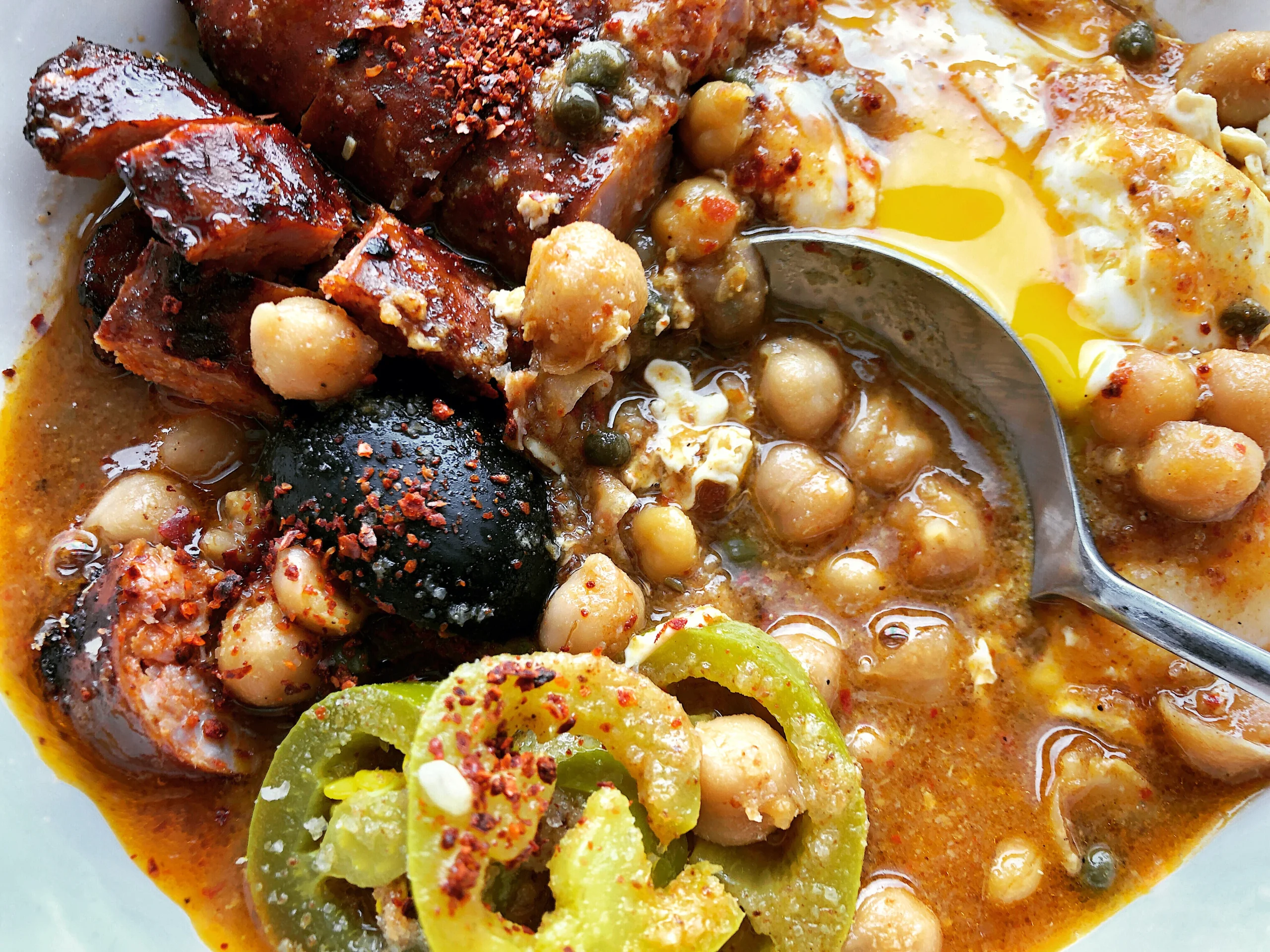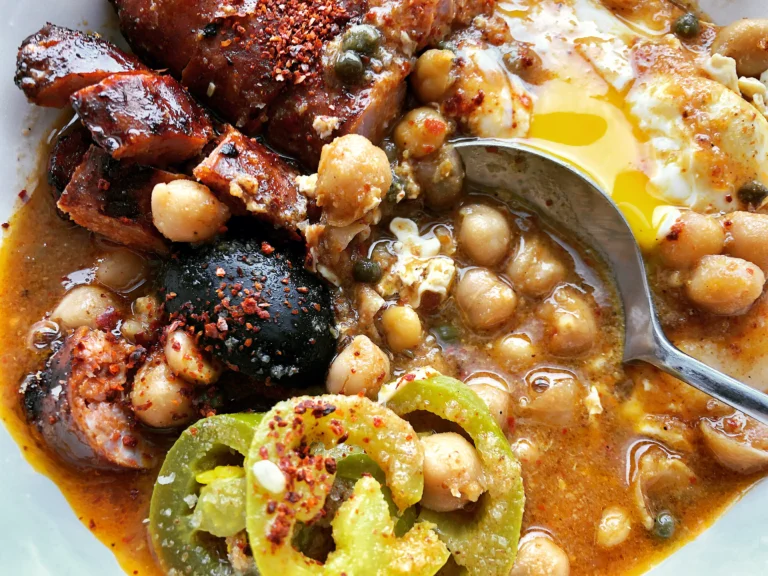Lablébi: Tunisia’s Comfort in a Bowl
Lablébi is one of Tunisia’s most beloved comfort foods — a simple chickpea stew that transforms humble ingredients into something nourishing and full of flavor. At its heart, it’s a mix of chickpeas simmered with garlic and cumin, served over torn bread, and brought to life with harissa, olive oil, and lemon. Toppings often include a poached or soft-boiled egg, olives, and capers. Cheap, filling, and deeply satisfying, it’s the kind of dish that warms you up on a cold morning and keeps you going all day.
We first tried Lablébi in a bustling market café in Monastir. The air was thick with steam, and every table was filled with people hunched over steaming bowls. It was humble food, yes, but it felt like the entire spirit of Tunisia in one dish — bold, spicy, and endlessly comforting.
The Tradition of Lablébi
In Tunisia, Lablébi is more than just a meal — it’s a ritual. Traditionally eaten for breakfast, especially during winter, it’s the dish workers and students rely on to start their day. Each person customizes their bowl: some stir in extra harissa for more heat, others add tuna or pickled vegetables, and everyone has their own balance of olive oil and lemon juice. It’s communal yet personal, a dish that feels like home whether you’re eating it in a café or at your grandmother’s table.

What is Lablébi made of?
The base of Lablébi is chickpeas simmered with garlic and cumin. It’s served over torn bread and topped with olive oil, harissa, lemon juice, and sometimes a poached egg. Extras like tuna, capers, and olives are common additions.
Is Lablébi eaten for breakfast or dinner?
Traditionally, Lablébi is a breakfast dish, especially in winter when something warm and filling is needed in the morning. That said, it’s also enjoyed at lunch or dinner — any time of day when comfort food is called for.
Is Lablébi healthy?
Yes! Chickpeas are high in protein and fiber, keeping you full and energized. Olive oil and eggs add healthy fats and protein, while harissa provides antioxidants from chili peppers. It’s hearty and nourishing without being heavy.
What does Lablébi taste like?
Lablébi is earthy from the chickpeas, aromatic with cumin and garlic, spicy from harissa, tangy from lemon, and rich from olive oil. The bread underneath soaks up the stew, making it both soupy and satisfying.
Can you make Lablébi at home?
Absolutely. Lablébi is simple to prepare: cook chickpeas with garlic and cumin, pour over torn bread, and top with olive oil, lemon, and harissa. Add an egg, tuna, or olives if you like. It’s easy to recreate Tunisia’s comfort food in your own kitchen.
Where can you eat Lablébi in Tunisia?
Everywhere! From small market cafés in Monastir to humble food stalls in Tunis, Lablébi is a staple of Tunisian street food culture. Each vendor has their own twist, and part of the fun is trying them all.
Share this recipe
Lablébi (Tunisian Chickpea Stew)

NUTRITION
Ingredients
- 2 cups cooked chickpeas with some cooking liquid reserved
- 3 cloves garlic minced
- 1 tsp ground cumin
- 1 –2 tbsp harissa to taste
- 3 –4 slices stale bread baguette or country-style bread, torn into pieces
- 2 tbsp olive oil plus extra for drizzling
- Juice of ½ lemon
- 2 eggs soft-boiled or poached, optional
- 6 –8 olives black or green, pitted and halved
- 1 tbsp capers optional
- Salt and black pepper to taste
- Fresh parsley chopped, for garnish
Instructions
- Prepare the chickpeas: In a saucepan, warm the chickpeas with some of their cooking liquid. Add the garlic, cumin, and a pinch of salt. Simmer for 10 minutes until fragrant.
- Add the harissa: Stir in harissa to taste. Adjust with more liquid if you prefer a soupier consistency.
- Prepare the bowls: Place torn bread pieces in the bottom of serving bowls. Ladle the hot chickpea mixture over the bread, allowing it to soak.
- Add toppings: Drizzle with olive oil and lemon juice. Top with olives, capers, and eggs (if using). Season with black pepper.
- Garnish: Finish with fresh parsley and serve immediately.
